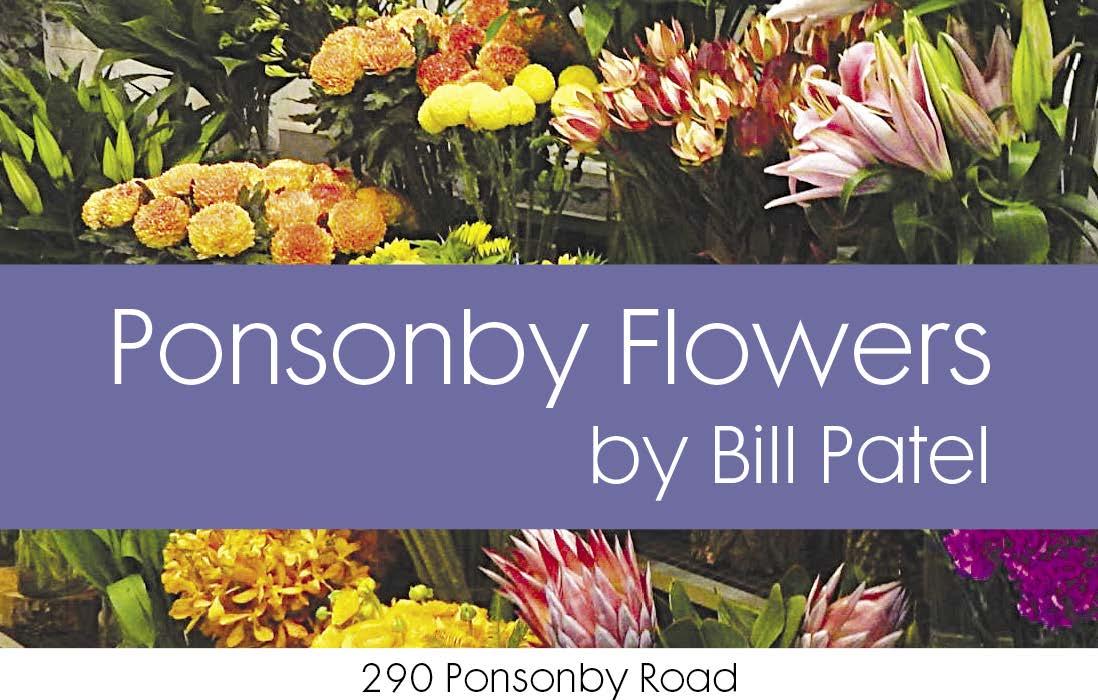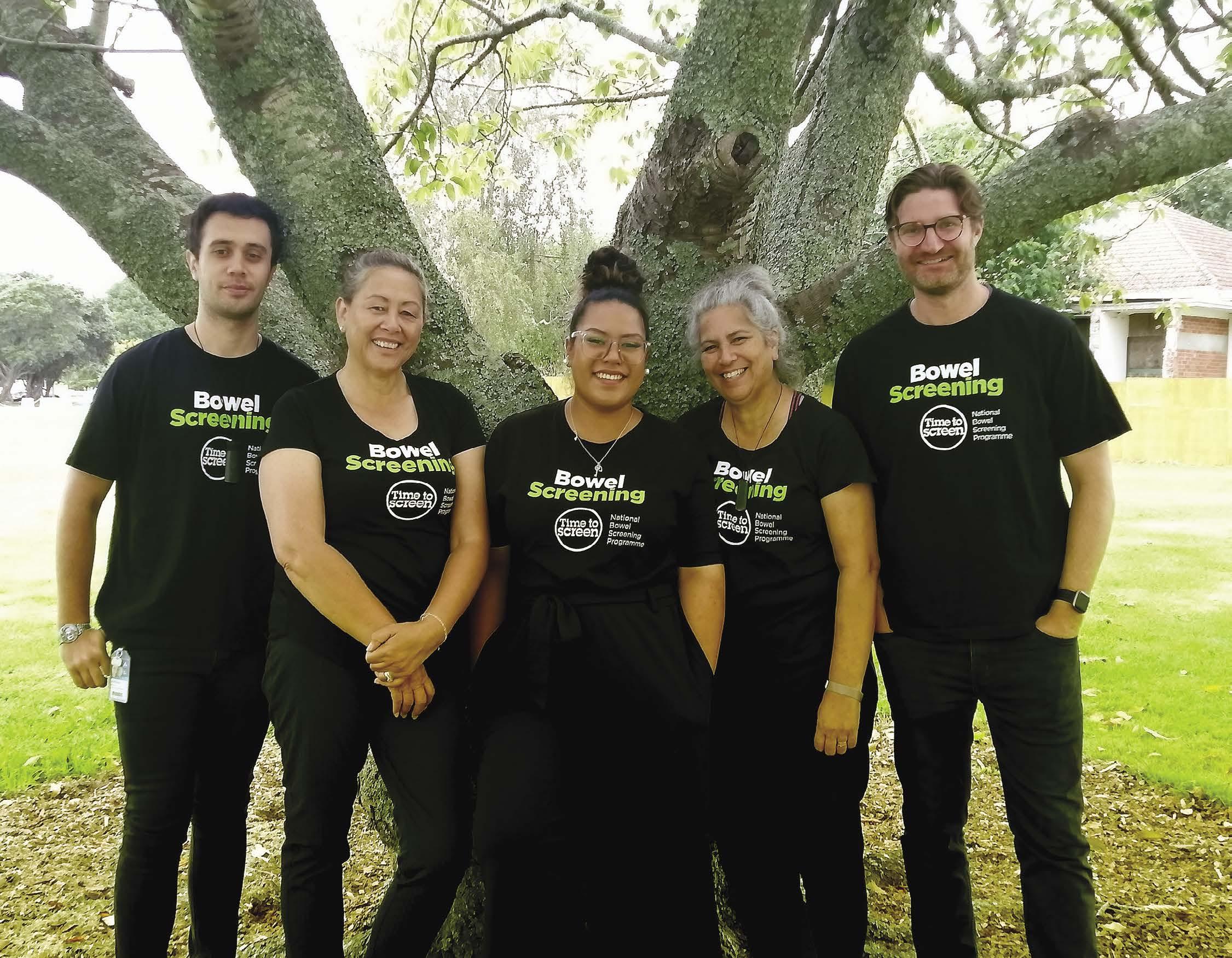
10 minute read
LIVING, THINKING + BEING
NEW SCREENING PROGRAMME ALREADY SAVING LIVES IN CENTRAL AUCKLAND
The Auckland DHB’s Bowel Screening Programme has been running for fewer than six months and is already saving lives, with fourteen cancers found through screening.
The programme, for people aged between 60 and 74, aims to catch cancers early, when they can often be successfully treated.
Remuera local, Anthony, received his bowel screening test kit in the mail and after completing the test at home, posted it back in the prepaid envelope to the laboratory. Anthony then received news that he had a positive FIT (faecal immunochemical test) result, which meant that some blood had been found in his bowel motion.
“I was surprised to get a positive result as I didn’t think there was a problem. My weight is stable, my bowel motions are regular, and I feel well. Receiving the news was scary, but the staff were very reassuring and the information they provided was very helpful and easy to read.”
For most people, a positive test result does not necessarily mean you have bowel cancer. About seven in every 100 people who get a positive test result will have cancer, but due to earlier detection will be more likely to have a successful outcome. People who are diagnosed with early stage bowel cancer, and who receive treatment early have a 90% chance of long term survival.
Anthony was surprised to hear that his friends didn’t participate in the screening, as bowel cancer is more common in those over 60, with men being at higher risk than women. “I said to them, don’t be silly, just get on with it. It’s free; we don’t have to pay for it. Men are their own worst enemies when it comes to this stuff. We get complacent; we can take so much for granted living in New Zealand.”
Two weeks after receiving his results, Anthony went for a colonoscopy at the Greenlane Clinical Centre where small biopsies were taken for further analysis. Anthony was delighted to get the ‘all-clear’.
“The procedure happened very quickly. I was given medication to help me feel comfortable and there was no pain or discomfort during or after the procedure. They took a biopsy and I didn’t feel a thing! I can’t emphasise the positive benefit of doing the bowel screening test. At least I can be confident and know that I’ve done the best I can by participating.” Anthony said he will happily partake in the screening process again to check in on his bowel health.
Bowel screening is free for those aged 60-74, and eligible for publicly funded healthcare. Invitations to participate in the programme appear in the letterboxes of those eligible (dependent on their birth date) and continue on a two-yearly cycle. PN
For more information, talk to your family doctor or visit timetoscreen.nz
ARPHS ADHB Bowel Screen Adverts (Team) APR21_v1.pdf 3 4/9/2021 5:17:02 PM Ponsonby News (180mm deep by 190mm wide)
PNWS APR21
Time to screen
Talk to us about bowel screening. It may save your life.
My body, my health, my future
TO FIND OUT MORE GO TO www.timetoscreen.nz Free phone 0800 924 432
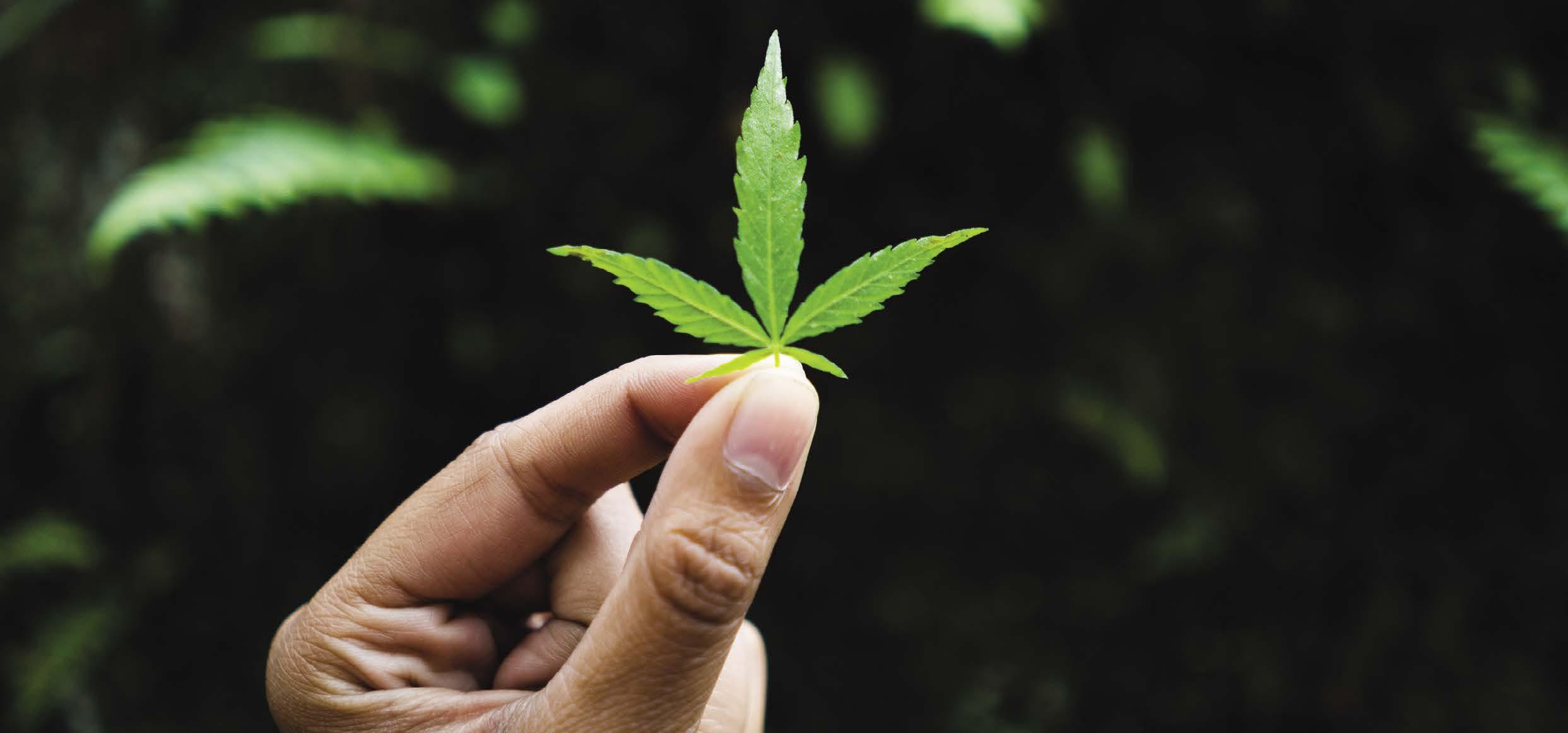
TADHG STOPFORD: OTAGO UNIVERSITY ALL YOU NEED TO KNOW ABOUT CANNABIS
At the recent North Island GP conference, Associate Professor Giles Newton-Howes of Otago gave us all a dose of the cannabis paradox. “All that you need to know about cannabis” was the title of his talk.
Associate Professor Newton-Howes is a strikingly tall and handsome man with a strong personal style. ‘All you need to know about cannabis’, was aimed at the thousand medical professionals attending the North Island GP Conference. It was the only talk on cannabis at the conference, and it had four points - all arguably a combination of irrelevant and wrong.
To a full house, he said:
• Kiwis use a lot of cannabis - True. With little knowledge, few harms, significant benefits.
• It’s stronger than ever - Unlike alcohol and paracetamol, it can’t kill. Educate/regulate.
• It can cause youth harm - Yes. THC is unhelpful for teenagers. CBD , CBG, CBC, could save some from psychosis, or suicidal anxiety and depression.
• There’s not enough evidence to prescribe cannabis - Incorrect. Defensible, but wrong.
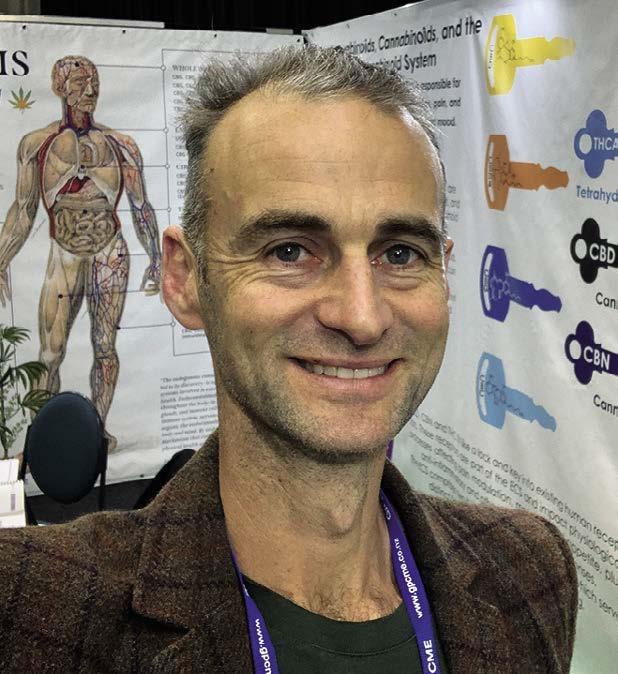
This last one made my heart race and stomach turn because once again the subject of cannabis was being absolutely misrepresented to prescribers, and through them, to Kiwis.
Otago University is a centre of medical research excellence, and it has numerous researchers in cannabinoid therapeutics. (Pharmacology is, I believe, the number one globally ranked subject of both Otago and Auckland Universities). Their work in synthetics is, as far as I am aware, based on patentable synthetic cannabinoids that target your cannabinoid system.
Most medicines target your cannabinoid receptors, because they maintain normal function. In fact, about two thirds of global pharmaceutical revenues come from drugs that target your cannabinoid system. That’s $900 billion USD.
That’s why ‘medical’ cannabis is a fast growing multi billion dollar industry, and that’s why cannabis is political because if hemp was regulated like a normal food product, it would compete against big pharma, and it would demolish big pharma’s market share.
Big pharma know this because they used to grow it and sell it.
‘Control the market, control the consumer, and control cannabis’ is their mantra.
Deregulate cannabis; it’s a herbal remedy. Let’s treat it as such. Make it a food again and get it out of MoDA.
The Cannabis Paradox: where an important medicine isn’t medicine, although it’s a medicine.
The Cannabis Paradox: where an ancient and important food is a prohibited food.
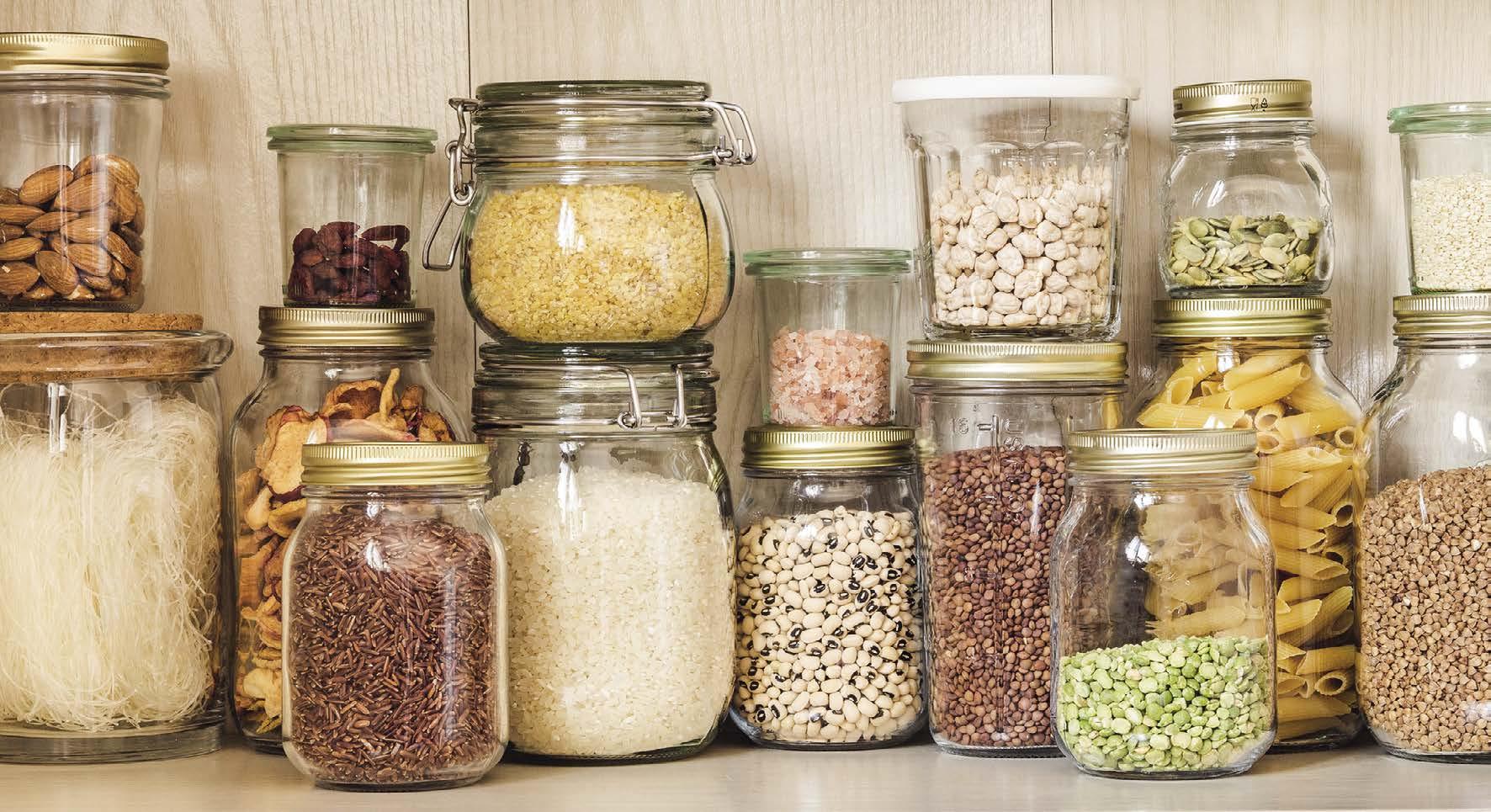
PLASTIC-FREE SHOPPING TIPS
Does the term ‘plastic free shopping’ conjure up images of a life spent eating solely dried pulses and nuts? There are lots of options if you’re looking to reduce your waste this Plastic Free July.
Give single serves a swerve - It seems like a no-brainer, but it’s easy to accidentally pick up a bag or box that’s filled with individually wrapped sweets, or single serves of miso soup. Carefully read the outer packaging if you’re unsure.
Buy big or go home - Whether you’re shopping for TP or tea bags – if it works with your budget and storage space, buy the biggest amount/largest container you can. This works best for non-perishable items you use often, like laundry liquid, body wash, cooking oil, and dry goods. There are double size and bulk versions of many ecostore products for the home and your humans.
Concentrate on reduction - Buying concentrated products is a great way to lower the packaging load. Consider switching to solid bars for your soap and haircare, for example. You could also try home care products like the new ecostore cleaner refill concentrates: one tiny recyclable glass bottle makes a whole 500ml trigger pack. Refill Nation and Bin Inn stores. Kit yourself out with cute Weck or Mason jars, or start saving good looking, uniform jars and lids of food you’ve already eaten.
Tip: You can now refill your favourite ecostore liquid products at 100 refill stations around New Zealand.
Contain yourself - Some supermarket’s deli, seafood and butchery departments now let customers bring their own containers. Next time you shop, bring clean containers with well-fitted lids, and ask at the counter.
Nude food - In the produce aisle, look for unwrapped fruit and veges and pop multiples in mesh bags or even reuse clean plastic bags. Or shop for fresh further afield: farmer’s markets and food coops are a useful source of packaging free produce, which (bonus) is often spray free or organic.
Incredible bulk - For an artful wholefood filled pantry that’s sustainable (not to mention ‘grammable’), packaging-free bulk shopping is becoming widely accessible. In Auckland we have GoodFor, Tip: Now you’re sorted to head to the shops, bring a couple of extra reusable bags you’re not attached to, so you can help a forgetful fellow shopper out. What goes around comes around.
ECOSTORE, 1 Scotland Street, Freemans Bay, T: 09 360 8477, www.ecostore.co.nz
LIVING, THINKING + BEING JOHN APPLETON: DIESEL PARTICULATES A POTENTIAL THREAT TO OUR HEALTH
Government plans to place levies on petrol and diesel vehicles in order to subsidise the purchase of electric vehicles will not only be a very unpopular ‘move’, it will not even come close to addressing what I believe the conversation needs to be about.
All of us in New Zealand will at some point need to be thinking about how we are going to limit the impact of emissions from diesel vehicles that have increased substantially in numbers over recent years.
When I am out walking in the evening it’s become almost impossible to avoid the emissions from diesel powered cars, utes, trucks and buses. Sometimes I find myself holding my breath for up to a minute as vehicles pass by. We should all be concerned about this and what it could mean for our own health and that of many of us who live in urban areas.
Internationally there is a lot being said about diesel particulates from cars, trucks and machinery. With lung cancer in New Zealand being our biggest killer in terms of cancer (1,600 deaths annually) we have every reason to be concerned. The very conservative American Cancer Society and the British Cancer Research Society have both come out and said that diesel exhaust fumes have been conclusively linked to lung cancer. Scientists at the International Agency for Research on Cancer (part of the World Health Organisation) say that diesel exhaust is a definite carcinogen in the highest possible category. A headline in the British Daily Mail reads, “Diesel exhaust fumes are a major cancer risk and as deadly as asbestos and mustard gas, says World Health Organisation”.
In New Zealand, we have allowed the importation of thousands of cheap second hand diesel vehicles that would not have been allowed on the road if appropriate emissions regulations were in place. No one seems to care and as more and more car transport ships arrive at our ports to unload their cargo of vehicles, the problem will continue to get worse.
Four of the world’s biggest cities - Paris, Madrid, Athens, and Mexico City - are to ban diesel vehicles from their centres within the next decade. Tokyo banned ‘dirty’ diesels from its streets in 2000 unless they could meet strict emission standards. How many of these discarded vehicles ended up in New Zealand?
Diesel exhaust is made up of two main parts - gases and soot (particles). Each of these in turn is made up of many different substances. The soot is made up of microscopic particles known as PAH’s (polycyclic aromatic hydrocarbons). These are less than one fifth the thickness of a human hair and can be deposited deep within the lungs where they can mutate the DNA over time. Dr Saiful Bari, programme director school of engineering University of South Australia, an expert on diesel fuels, is emphatic about the dangers of diesel emissions for the general public. He says, “all particulates from diesel engines are harmful; even the latest socalled “clean” diesels are not necessarily safe because the particles are so small they can bypass the lung’s natural defences.”
As well as thinking about ourselves, surely we need to think about the children who are exposed to diesel emissions as they walk to and from school. How will they cope with very considerable exposure over many years?
Diesel engines have become very popular as they were seen as being ‘greener’ due to their CO2 output being significantly less than that of petrol engines. However while exhaust emissions from petrol engines are toxic, they don’t have the diesel particulates that are so harmful. If petrol engines were all fitted with catalytic converters which reduce the toxicity of emissions as they have been in the U.S since 1975, this could be a major step in the right direction and we could progressively reduce our reliance on diesel engines. (JOHN APPLETON) PN
E: john@johnappleton.co.nz www.johnappleton.co.nz
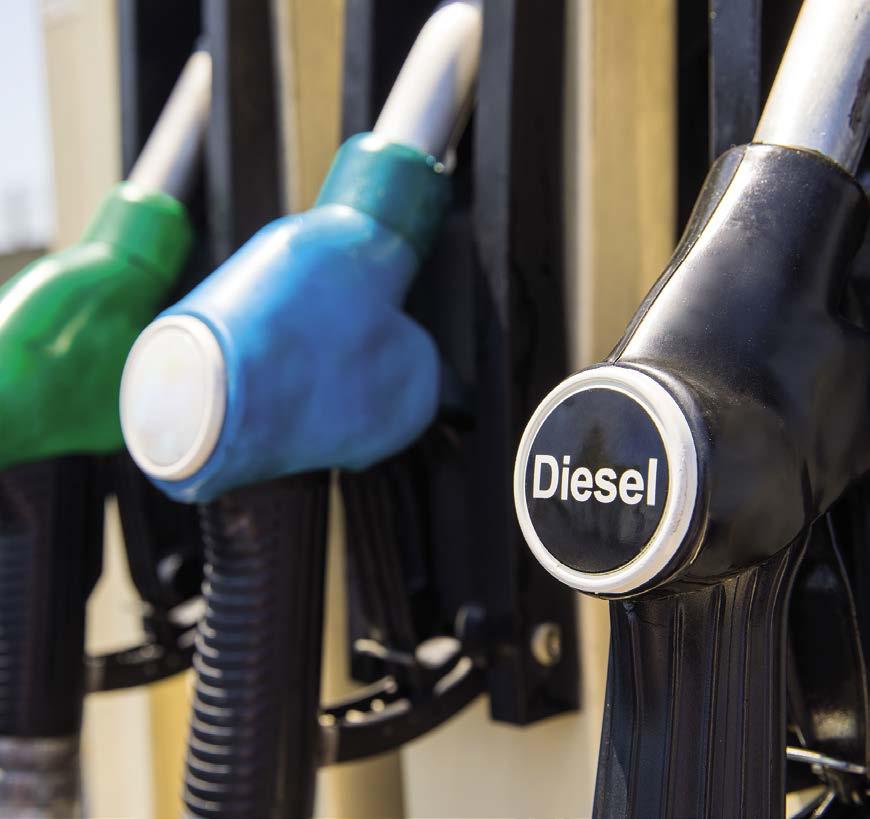
MICHAEL OWEN SHEN® THERAPY
